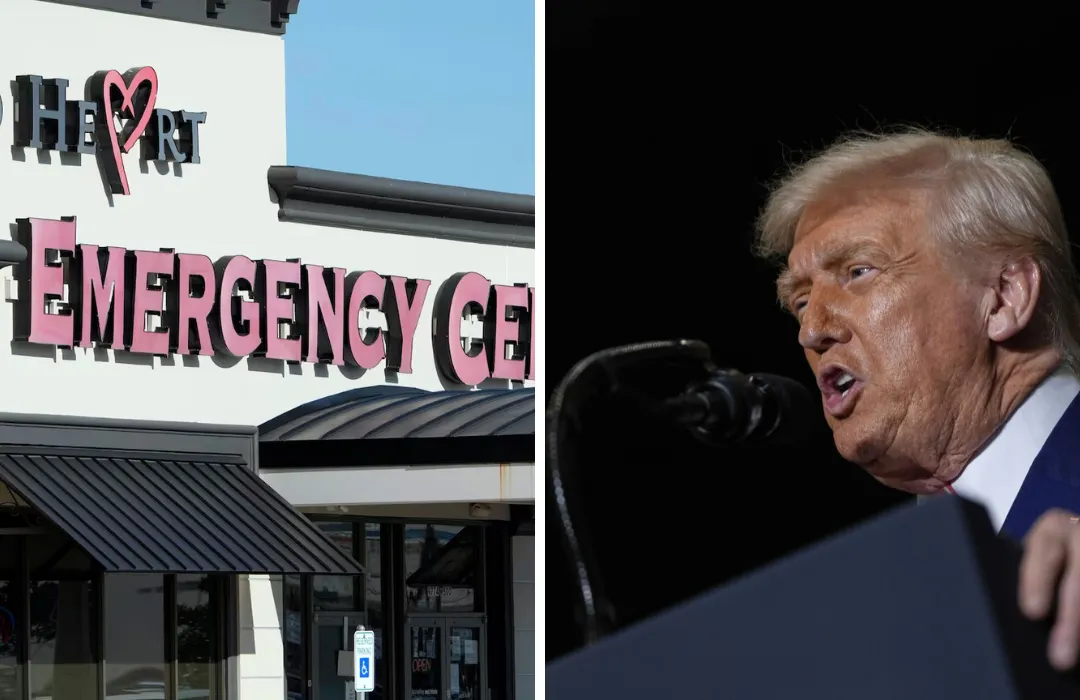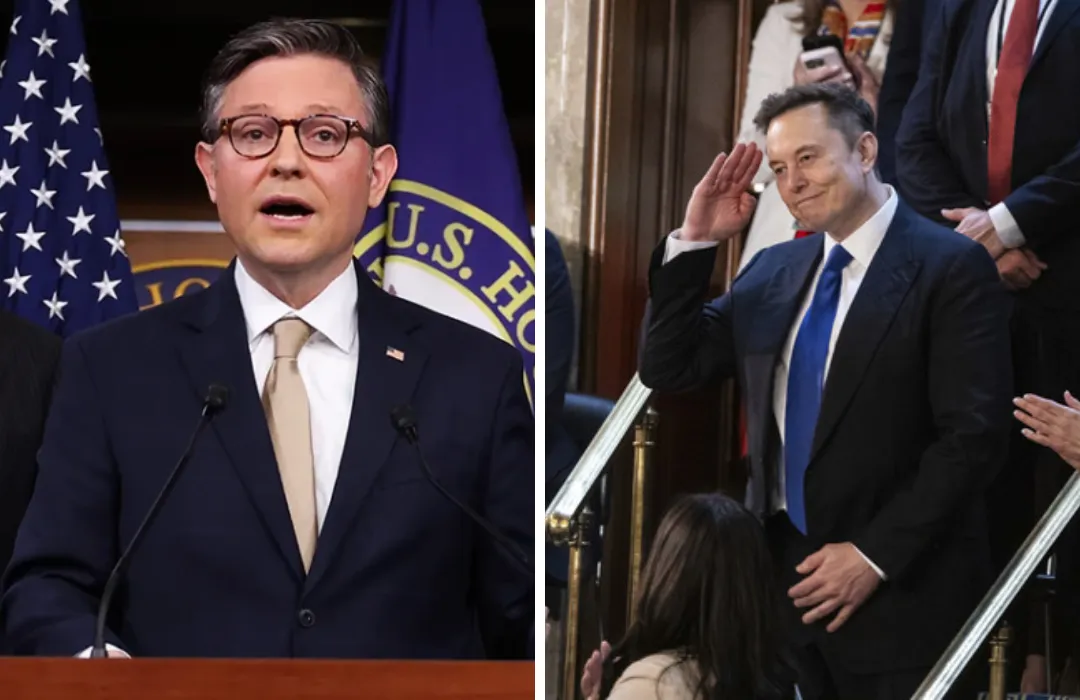
A man who voted for President Donald Trump in the last election has publicly stated that he does not regret his decision, even though his wife, Camila Muñoz, was detained by Immigration and Customs Enforcement (ICE) officials upon their return from their honeymoon. Bradley Bartell, a Wisconsin resident, expressed his unwavering support for Trump, despite the intense personal turmoil he is currently facing due to the federal government’s aggressive immigration enforcement policies.
Muñoz, a Peruvian citizen, had overstayed her initial work-study visa and was in the process of obtaining permanent residency in the U.S. when she was detained by ICE. While the couple’s experience has brought them public attention, it also sheds light on the growing concern among many Americans, even some who supported Trump, about the severe impact of the administration’s tough stance on immigration.
Bradley Bartell and Camila Muñoz met while she was working in farming and hospitality in Wisconsin. Initially, Muñoz had discarded a scrap of paper containing Bartell’s phone number after he gave it to her. However, they reconnected days later through Facebook, and their relationship quickly grew serious.
Eventually, the two married, but the pandemic prevented them from having a honeymoon for a long time.
In February of this year, Bartell and Muñoz finally traveled to Puerto Rico for their delayed honeymoon. Upon their return to the U.S. mainland, immigration officers stopped Muñoz at the airport and asked her if she was an American citizen.

After explaining that she was in the process of obtaining a green card, Muñoz was detained and taken to an ICE facility in Louisiana.
Despite the distressing situation, Bartell, who has faced public backlash since sharing his story, maintains his support for Trump. “I don’t regret the vote,” he said in an exclusive statement to Newsweek, expressing that he still believes in the promises Trump made to the American people, particularly in regard to immigration reform.
Bartell’s decision to publicly stand by his vote, even in the face of personal hardship, highlights the deep divides within the American electorate over immigration and enforcement policies.
“I’ve received a lot of hateful messages, plenty of people saying we deserve this, and a lot of other insults,” Bartell remarked, acknowledging the criticism he has received from individuals who feel that his wife’s detention is a direct consequence of supporting Trump’s policies. Despite these messages, Bartell maintains his position and calls for immigration reform to improve the system’s efficiency.
He also criticized ICE for its lack of clear communication and the inefficiencies he encountered in his wife’s case. “The system for getting people through seems to be very inefficient, so it is taking longer than it should,” Bartell added.
The situation has also caused Bartell to consider drastic measures if Muñoz is deported. "It has crossed my mind to move to Peru if she gets deported, but it would be very difficult for my son," he confessed, emphasizing the personal toll the ordeal has taken on his family.
The emotional strain is evident as the couple navigates a complicated legal battle, which is far from over.

Bartell’s experience is not unique. Other Trump supporters have similarly been affected by the administration’s aggressive immigration enforcement operations. Just weeks earlier, ICE detained Jensy Machado, a naturalized U.S. citizen, in northern Virginia.
Machado, who voted for Trump in the 2020 election, expressed dismay at the treatment he received. “They just got out of the car with the guns in their hands and say, turn off the car, give me the keys, open the window. Everything was really fast,” Machado explained.
“I voted for Trump last election, but, because I thought it was going to be the things, you know, like … just go against criminals, not every Hispanic looking, like, that they will assume that we are all illegals.”
Recent ICE operations have also led to the detention of several legal residents, including Mahmoud Khalil, a Palestinian student activist and legal green card holder. Khalil was detained in front of his pregnant wife in their home in a Columbia University-owned building.
These high-profile cases have raised concerns that ICE’s aggressive deportation strategy is ensnaring innocent individuals and legal residents, something Trump had promised to avoid during his campaign.
Despite the growing backlash, Trump’s administration has stood by its policies, insisting that anyone who is in the U.S. unlawfully, regardless of their background, is subject to deportation. A spokesperson for the Department of Homeland Security defended the administration’s stance, stating, "Thanks to President Trump and Secretary Noem, we are once again a nation of laws.
We will find, arrest, and deport illegal aliens. We are prioritizing the worst of the worst and aliens with final removal orders." The spokesperson added that individuals who enter the U.S. illegally or overstay their visas are subject to deportation and will face permanent consequences.
This message has been reinforced by White House press secretary Karoline Leavitt, who reiterated that individuals overstaying their visas are considered illegal immigrants and subject to removal from the country. “If an individual is overstaying their visa, they are, therefore, an illegal immigrant residing in this country, and they are subject to deportation,” Leavitt said during a January news conference.

While Trump’s immigration policies have been praised by some as necessary to secure the nation’s borders and protect jobs for American citizens, they have also faced mounting legal challenges from advocacy groups and individuals who argue that these policies disproportionately affect innocent families and legal residents.
The growing number of cases in which legal residents and U.S. citizens have been detained highlights the potential for widespread collateral damage, even among Trump’s base of supporters.
The freeze on federal funding to cities and universities that provide sanctuary to undocumented immigrants, alongside the increasing number of deportations and detentions, underscores the tension between the Trump administration’s hardline stance on immigration and the rights of individuals who live and work legally in the U.S.
As these enforcement actions continue, questions about the fairness of the immigration system, particularly in light of the collateral damage it causes, are likely to grow.
For now, Bartell remains supportive of Trump, hoping that the attention brought to his family’s ordeal will help shed light on the inefficiencies and flaws in the immigration system. He acknowledged that while Trump didn’t create the system, he has the opportunity to improve it. "Hopefully, all this attention will bring to light how broken it is," Bartell said.

His hope is that the president will take steps to reform the system and ensure that those who are caught in its web are treated more fairly.
-1748406596-q80.webp)


-1745663120-q80.webp)